Culture & Media
Stage Review: ‘Mutual Philanthropy’ in Mount Washington
One of the wryest moments in Karen Rizzo’s insightful one-act comes when Lee (Mark Carapezza), a sculptor attending a dinner party with his wife, blinks with bewilderment as he clutches a glass of $2,500-a-bottle Scotch in one hand and a goblet of chichi red wine in the other.
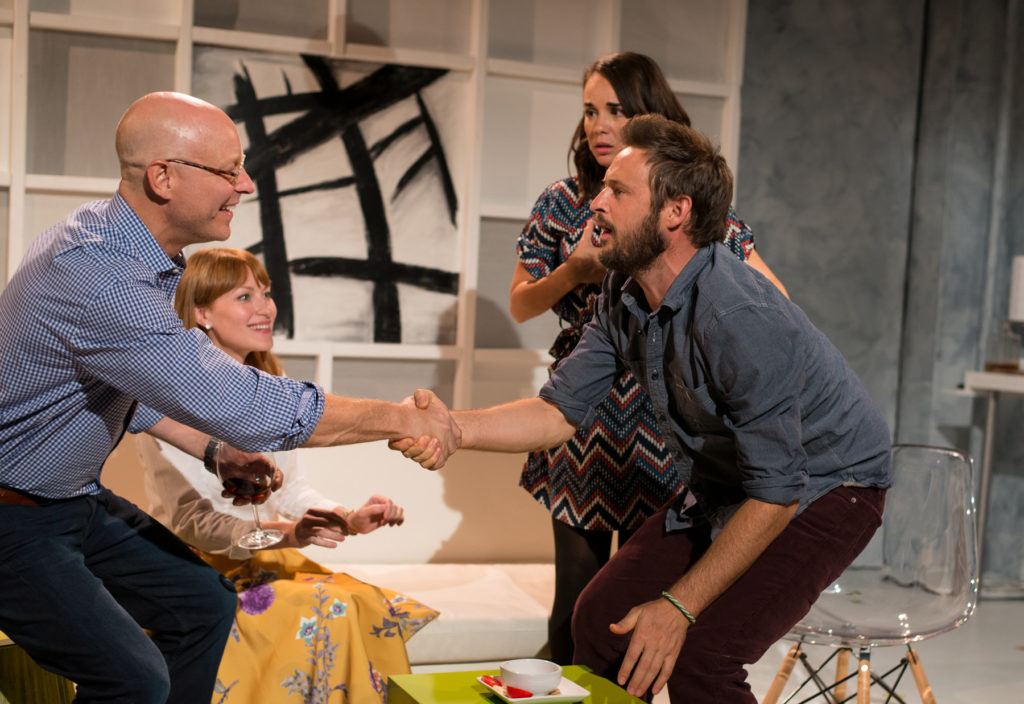
Dinner-party gentrification. (Photo: Lew Abramson)
One of the wryest moments in Karen Rizzo’s insightful, 75-minute one-act comes when Lee (Mark Carapezza), a sculptor attending a dinner party with his wife, blinks with bewilderment as he clutches a glass of $2,500-a-bottle Scotch in one hand and a goblet of chichi red wine in the other. This comic split-second (before he gulps the Scotch) is one of many carefully crafted bits that director Dan Bonnell and his ensemble invest in Rizzo’s already savvy social drama.
The wine, a Barolo, is presented to the already inebriated Lee by his slithery host, Charles (James MacDonald), an investment banker and potential buyer of one of Lee’s sculptures. A guy oozing smug confidence who likes posing hand-on-hip, Charles could not be more different from his unpretentious guest, who makes clear to us early on that he’d rather be home rolling around on the floor with his kids than socializing with this smirky rich dude and his effusive and professionally hospitable wife, Michelle (Brea Bee).
But Lee’s own wife, Esther (Xochitl Romero), who is the family breadwinner, has insisted. Esther not only brings home the bacon, she also does the household bookkeeping. She understands just how far behind she and Lee have fallen, and how much they really need that sale to help them stay afloat.
So does Charles. And it’s in this context that he and Michelle make an unusual offer to Lee and Esther: a gift of money large enough to reboot their lives. This means her own business for Esther, a studio for Lee, or whatever their hearts desire — and no strings attached, says Charles.
Of course there is no such thing (“If something sounds too good to be true…”), as both Lee and Esther understand in their own separate ways. But instead of politely declining and taking their leave, they hang out (mustn’t offend the customer), precipitating a series of maneuverings, manipulations and disclosures that culminate in a dry and painfully ironic catharsis.
Mutual Philanthropy is a great character study, but what gives it heft beyond the power interplay among the four principals is its reflection on what’s happening now (and for the past several decades) in our communities at large: the widening gulf between those who have all the material things they need and then some, and the growing number among us who struggle to survive. That the play is set in an L.A. neighborhood, Mount Washington, where gentrification encourages the haves and have-nots to live side by side (till such time as the latter are pushed out, one presumes) —makes the story (conceived by Rizzo and MacDonald) all the more immediate and personally relevant to local audiences.
On the other hand, this is a script whose plethora of two-couple chitchat might have grown tiresome if less subtly calibrated. Under Bonnell’s direction, however, there’s fine work across the board: MacDonald as the eel-like, disturbingly well-mannered Charles, accustomed to getting everything he wants; Romero as the pragmatic Esther, and the play’s ethical spine; and Carapezza as her likable spouse, an artist with his own brand of perennial youthfulness and integrity. The performance I savored most, however, was Bee’s Michelle, a flawlessly true-to-life portrait of a privileged woman whose aspiration to do good masks a potpourri of resentments.
Ensemble Theatre Studio/LA, 3269 Casitas Ave., Los Angeles; Thurs., 8 p.m. (Sept. 15 & 22) Fri.-Sat., 8 p.m.; Sun., 3 & 7 p.m.; through Sept. 25. (818) 858-0440 or brownpapertickets.com.

-
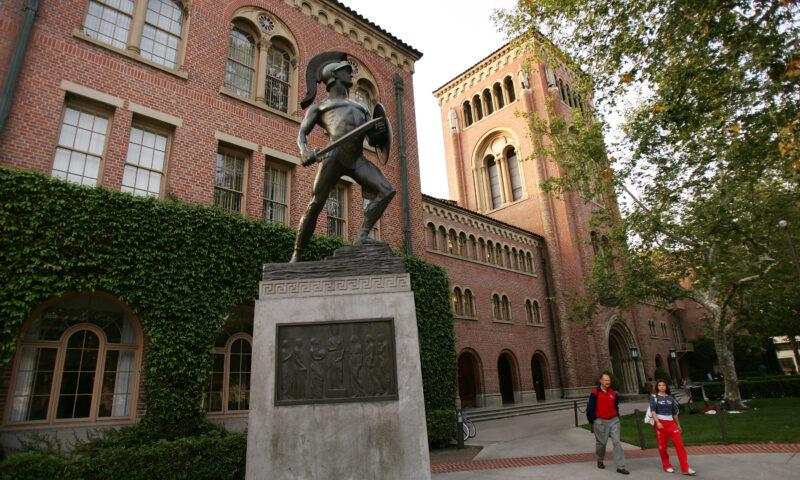
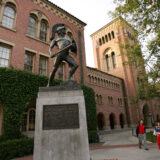 Striking BackApril 10, 2025
Striking BackApril 10, 2025USC Follows Amazon and Musk’s SpaceX in Calling Labor Board Unconstitutional
-
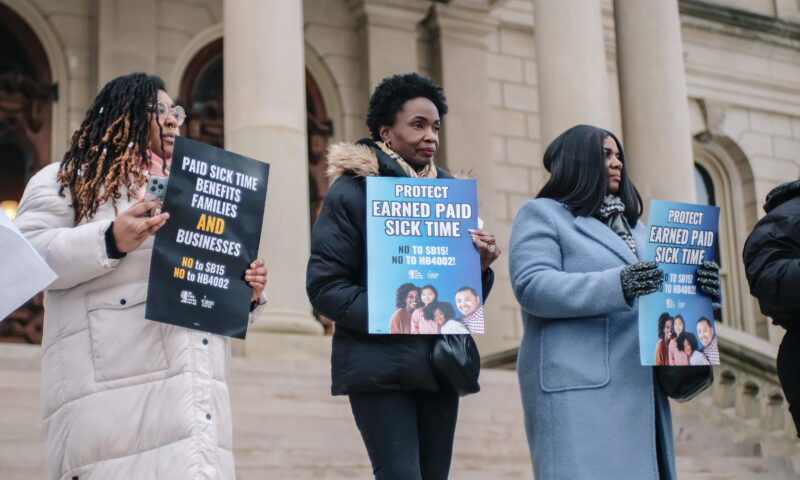
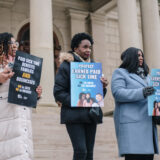 Latest NewsApril 9, 2025
Latest NewsApril 9, 2025Democratic and Republican Lawmakers Work to Undermine Voter-Backed Wage and Sick Leave Laws
-

 Latest NewsApril 28, 2025
Latest NewsApril 28, 2025A Majority of Californians Support Affordable Health Care for Undocumented Immigrants, Polls Show
-
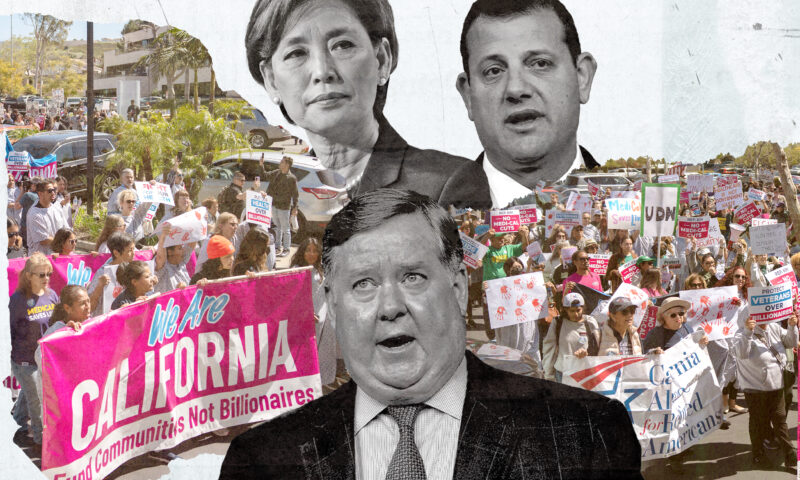
 Latest NewsApril 11, 2025
Latest NewsApril 11, 2025California Showdown Over Medicaid as GOP Approves Massive Cuts
-

 Column - California UncoveredMay 5, 2025
Column - California UncoveredMay 5, 2025How Did Farmers Respond When the Trump Administration Suddenly Stopped Paying Them to Help Feed Needy Californians?
-

 Column - State of InequalityApril 11, 2025
Column - State of InequalityApril 11, 2025California State University’s Financial Aid Students Learn Chaos 101
-

 The SlickApril 30, 2025
The SlickApril 30, 2025Fracking-Powered Crypto Mine in Pennsylvania Shuts Down Without Word to Regulators
-

 The SlickApril 16, 2025
The SlickApril 16, 2025In Colorado, Gas for Cars Could Soon Come With a Warning Label

